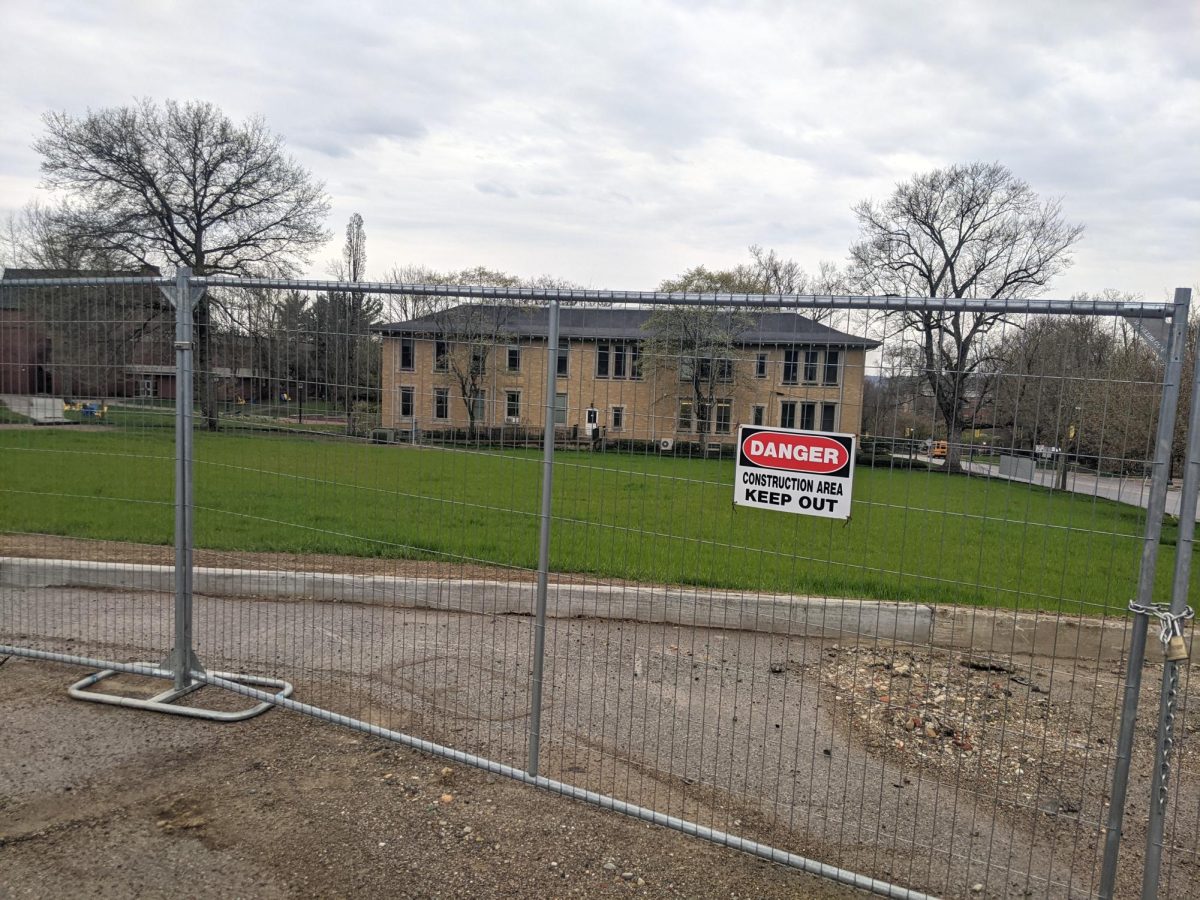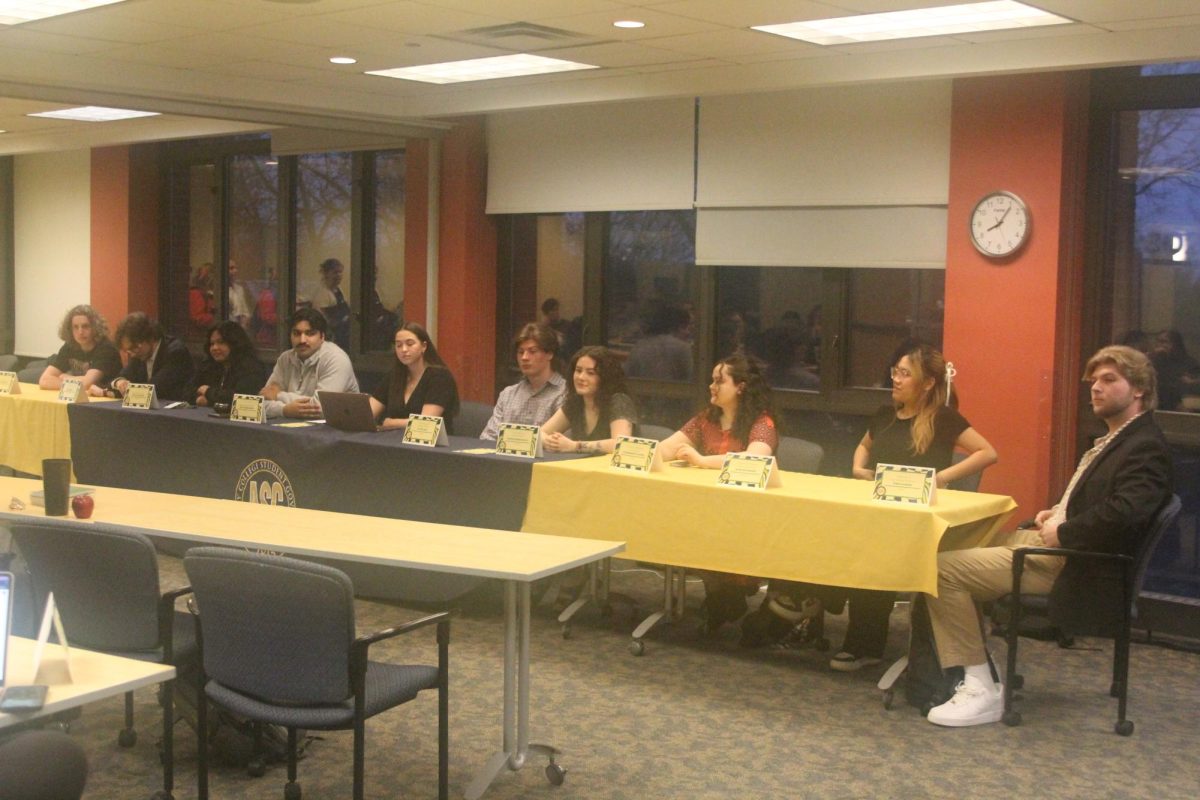In conjunction with World AIDS Day, a talk titled “I Did Not Learn to Live until I Almost Died” was presented by a 22-year AIDS survivor in the Campus Center lobby Tuesday night. Area Coordinator Betsy Scarpaci invited the speaker, Ida Byther-Smith, to campus and the event was also sponsored by Advancement of Black Culture and Queers and Allies.
“I thought her story was so powerful and college students today don’t necessarily hear about HIV, they don’t hear about STDs, they don’t hear about AIDS,” Scarpaci said. “And so to have to have somebody put a face to this certain virus, it makes it more compelling to listen to.”
Byther-Smith dedicates her life to raising HIV and AIDS awareness and putting a face to the disease. As a mother and grandmother who never did drugs, Byther-Smith said that she wants to break down the stereotypes that link HIV strictly to gay white men and drug users.
“We’ve gotta get past the stigma because the stigma is just something that somebody put on it. HIV don’t discriminate, it don’t matter who you are, what you are, what color you are,” she said. “anybody can become HIV positive. It’s not who you are it’s what you do; if you have unprotected sex you’re at risk.”
Byther-Smith also spoke out against the myths that women cannot infect men and that the virus can be spread through touch or saliva.
“You can French kiss somebody and it would take at least seven bottles of spit just like this for you to infect somebody,” she said, referring to her water bottle. “So if you’re givin’ somebody that much spit, you ain’t kissin’ no more.”
Byther-Smith said that it’s unacceptable that after 30 years of knowing about the virus, people in the U.S. are still trying to promote awareness and prevention. She advocated testing for everyone, whether they are in a monogamous relationship or a virgin.
“You have to take control of your life. You don’t put your life in another person’s hands,” she said. “Know your partner, take time to know people. Don’t just bed hop.”
While Byther-Smith advocates responsibility, testing and condoms, she states that she doesn’t promote abstinence because waiting until marriage doesn’t always prevent people from contracting AIDS.
“I can’t preach abstinence because I got married and I still got AIDS,” she said.
Byther-Smith discovered that she contracted the virus in 1991 and that she got it from her husband, from whom she has just separated.
Much of the talk centered around Byther-Smith’s personal struggle and journey after being diagnosed with the virus. She said that until she nearly died in Hospice in 2000, she fought with feelings of shame and uncleanliness because of her disease.
“I felt so dirty that I would reject people before they had a chance to reject me,” she said. “I thought I had something that was gonna be contagious to everybody.”
In 2000, after falling sick with pneumonia, Byther-Smith was rushed to the hospital on Christmas day with a temperature of 104 and a T-cell count of zero.
“I heard one of the nurses say when they brought me in, she said, ‘They brought her in through the ER but they’ll be taking her out through the morgue,” she said. “But lo and behold, I’m still here.”
Many audience members found Byther-Smith’s story compelling.
“It was really moving,” said Claire Wesolosky, ’13. “It was so hard to watch her almost start to cry and then hold it back.”
Shannon Wade, ’13, a member of QnA, agreed, adding that she hopes the talk will raise awareness about HIV and motivate people to take steps not to contract it.
Scarpaci also stated that HIV awareness and prevention is essential and urged college students to begin taking responsibility for their health and the health of others.
“We teach students everything about how to live in the adult world, why not talk about things that they’re going to encounter which could happen to be HIV, STDs, even AIDS,” she said. “We might as well just talk about it, it’s there, it’s not something that we should sweep under the carpet.”
One resource for information that’s available to Allegheny students is the Winslow Health Center, which offers in-person and over-the-phone counseling to students as well as STD testing services. The Center also refers students to health providers in Meadville and the State Health Center.
Health Center Director Sue Plunkett encouraged students to educate themselves, not only about HIV but other STDs that impact college students.
“I think it’s important to have accurate information and to realize which diseases that you’re at greatest risk for, and which ones are your worst risk,” she said. “Obviously, your worst risk is you don’t want to get something that’s not curable, but in a college-age population, there are diseases that they’re at greater risk for.”






